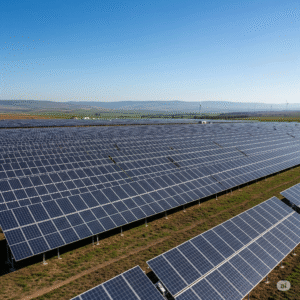Table of Contents
ToggleIntroduction
Human civilization has always advanced on the foundation of knowledge. From ancient times when communities shared wisdom orally, to the modern digital era where information spreads globally within seconds, knowledge has played a central role in shaping societies. Among different kinds of knowledge, general knowledge occupies a special place. It refers to a broad awareness of facts, ideas, events, and principles across diverse domains—history, politics, science, literature, geography, culture, and current affairs. Unlike specialized or technical knowledge, general knowledge equips individuals with a holistic understanding of the world and their role in it.
In today’s interconnected and fast-changing world, general knowledge is more than just a collection of facts. It influences personal growth, education, employment, decision-making, civic participation, and the overall progress of society. This article explores the relationship between general knowledge and society, highlighting its importance, applications, challenges, and the ways in which it strengthens communities.
What is General Knowledge?
General knowledge is the cumulative awareness of common and important information that is not confined to one field. It is multidisciplinary, covering subjects such as:
History and Heritage – knowledge about past civilizations, freedom movements, and cultural achievements.
Geography – awareness of continents, countries, climate, resources, and ecosystems.
Science and Technology – understanding of discoveries, inventions, and their impact on human life.
Politics and Governance – knowledge of constitutions, democracy, world organizations, and laws.
Economics and Business – awareness of trade, finance, industries, and markets.
Culture and Society – familiarity with languages, religions, arts, and customs.
Current Affairs – up-to-date knowledge about national and global events.
Unlike specialized knowledge that experts use in their professions, general knowledge makes people well-rounded, adaptable, and better equipped to engage with society.
Importance of General Knowledge in Society
Building Informed Citizens
Democratic societies thrive when citizens are informed about their rights, duties, and the functioning of governments. General knowledge enables individuals to evaluate political promises, understand policies, and make rational choices during elections. It guards against misinformation and manipulation, empowering citizens to participate meaningfully in governance.
Strengthening Education
Education is not just about passing exams or gaining degrees; it is about developing the intellect and personality of individuals. General knowledge acts as the foundation of holistic education. It broadens horizons, nurtures curiosity, and fosters a love for lifelong learning. Students with strong general knowledge perform better in debates, discussions, and examinations.
Enhancing Career Opportunities
Employers value candidates who are not only technically competent but also socially aware. General knowledge helps in interviews, competitive exams, and workplace conversations. In fields like journalism, law, administration, and teaching, it is indispensable. Even in business and entrepreneurship, an awareness of global markets, cultural diversity, and technological trends can make the difference between success and failure.
Promoting Social Cohesion
A society is made up of diverse groups with different languages, cultures, and traditions. General knowledge about each other’s history, festivals, and customs helps reduce prejudice and builds harmony. It fosters respect, tolerance, and empathy, which are vital for peaceful coexistence.
Empowering Decision-Making
Everyday decisions—such as voting, investing, traveling, or even choosing healthy food—are influenced by general knowledge. People who are aware of economic trends, health facts, or environmental issues make wiser decisions, benefiting both themselves and society.
General Knowledge as a Cultural Force
Knowledge is not only an individual asset; it is also a cultural treasure. The collective awareness of history, traditions, and achievements defines the identity of a society. For example:
India preserves its rich cultural identity by passing on knowledge of its festivals, languages, and literature.
Greece and Rome are remembered for their contributions to philosophy, democracy, and architecture.
The Renaissance in Europe revived art and knowledge, leading to societal transformation.
General knowledge of these cultural milestones helps societies stay rooted in their heritage while progressing toward the future. It also fosters pride and unity among citizens.
Role of Media and Technology
In the past, general knowledge spread through storytelling, scriptures, libraries, and formal education. Today, media and technology have become the most powerful tools for disseminating knowledge.
Print Media – newspapers and magazines provide daily updates on current affairs.
Broadcast Media – television and radio spread information widely, even to rural areas.
Digital Media – the internet, social media, and mobile apps make knowledge accessible anytime, anywhere.
E-learning Platforms – online courses, digital libraries, and podcasts make self-education easier than ever.
While technology has democratized access to knowledge, it also brings challenges like misinformation, fake news, and information overload. Thus, society must develop the ability to verify sources and think critically.
General Knowledge in Education Systems
Education systems worldwide recognize the importance of general knowledge. Many schools and colleges include quizzes, debates, and general studies as part of their curriculum. Civil services and competitive exams test candidates not only on academic subjects but also on current affairs and general awareness.
Countries that emphasize general knowledge in education produce citizens who are:
More confident and articulate in communication.
Better equipped to adapt to global changes.
Capable of contributing positively to national development.
For instance, the Indian Union Public Service Commission (UPSC) examination places heavy emphasis on general knowledge, as future administrators are expected to be well-rounded and socially aware.
General Knowledge and Globalization
The 21st century is marked by globalization, where societies are interconnected through trade, travel, technology, and communication. General knowledge has become even more vital in this context.
Global Awareness – Knowing about international events like climate change, pandemics, and financial crises helps societies respond collectively.
Cross-Cultural Understanding – General knowledge of world cultures enhances tourism, diplomacy, and global business relations.
Language and Communication – Awareness of global languages and cultural etiquette reduces barriers in international collaboration.
Without general knowledge, societies risk becoming isolated and unable to compete on the world stage.
Challenges in Spreading General Knowledge
Despite its importance, spreading general knowledge faces certain challenges:
Misinformation – False news spreads rapidly on social media, confusing people.
Educational Inequality – Not all sections of society have equal access to quality education.
Information Overload – The internet offers too much information, making it hard to identify what is important.
Declining Reading Habits – Many young people prefer short digital content over books, leading to shallow knowledge.
Language Barriers – Valuable information is often locked in languages not accessible to everyone.
Societies must address these challenges by encouraging critical thinking, promoting libraries, and ensuring equal access to education.
Case Studies: General Knowledge Impacting Society
India’s Freedom Struggle
During the independence movement, leaders like Mahatma Gandhi and Jawaharlal Nehru spread knowledge about self-rule, justice, and freedom. This general awareness united millions of Indians across diverse regions and cultures.
Public Health Awareness
General knowledge about sanitation, vaccinations, and hygiene has saved millions of lives. For instance, during the COVID-19 pandemic, societies that spread awareness effectively were better able to control the virus.
Environmental Movements
Movements like “Fridays for Future” show how general knowledge about climate change inspires young people to demand sustainable policies from governments worldwide.
Technological Literacy
Societies that invest in spreading general knowledge of digital skills empower citizens to participate in the global economy. Countries like South Korea and Singapore have benefitted immensely from this.
The Future of General Knowledge and Society
Looking ahead, general knowledge will continue to evolve with advancements in technology and changes in society. Some key trends include:
Artificial Intelligence (AI) and Knowledge Access – AI tools are making information more accessible, but they also require critical evaluation.
Global Education Platforms – Online learning will make general knowledge more universal.
Cultural Preservation – Even in a digital world, societies will need to preserve traditional knowledge and heritage.
In the future, the most successful societies will be those that balance modern knowledge with cultural wisdom, ensuring inclusivity and ethical use of information.
Conclusion
General knowledge is more than a set of facts; it is the lifeblood of society. It nurtures informed citizens, strengthens education, enhances careers, promotes harmony, and empowers decision-making. It connects people to their culture, unites them across differences, and prepares them for global challenges.
A society rich in general knowledge is a society that thrives—socially, economically, and culturally. In an age where information is abundant but often fragmented, the true challenge lies in cultivating meaningful knowledge, applying it wisely, and ensuring it benefits all.
Thus, the relationship between general knowledge and society is one of mutual growth: knowledge shapes society, and society, in turn, preserves and spreads knowledge. Investing in general knowledge is investing in the progress of humanity itself.



